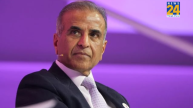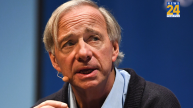Tesla CEO Elon Musk has sounded the alarm over a “financial emergency.” He pointed out that the U.S. government’s annual interest payments have now exceeded $1 trillion. This staggering figure has surpassed the entire budget of the Defense Department, raising concerns about the nation’s fiscal health and prompting calls for urgent financial reform. Now, Musk is making extra efforts to help “crypto president” Donald Trump regain the White House.
Speaking at a recent Trump rally, Tesla’s Elon Musk called attention to what he sees as a looming crisis. U.S. interest payments now consume a whopping 23% of federal tax revenue. With the national debt at $35.7 trillion, Bank of America analysts warn it could hit $36 trillion by year’s end, increasing at nearly $1 trillion every 100 days. Musk’s remarks have sparked fresh debate about America’s mounting debt and the need for urgent financial changes.
At the @realDonaldTrump / @JDVance rally at Madison Square Garden!
https://t.co/gEcj39mXIp— Elon Musk (@elonmusk) October 27, 2024
---Advertisement---
“Just the interest payments on the debt are 23% of all federal tax revenue,” Musk said during a Trump campaign rally, later calling the situation a “financial emergency” on X. “The interest payments now exceed the Defense Department budget, which is $1 trillion a year. That’s a lot of money.”
Unpacking America’s $35 Trillion Debt “Time Bomb”: Inflation, Interest Rates And The Shift To Alternative Assets
The U.S. national debt, now surpassing $35 trillion, is a ticking “time bomb,” driven largely by unprecedented COVID-era stimulus spending. Though essential at the time, these measures contributed to inflationary pressures that forced the Federal Reserve into aggressive rate hikes. High inflation and rising interest rates have intensified the debt servicing burden, now exceeding $1 trillion annually.
Analysts anticipate further deficit increases, with projections suggesting an additional $500-600 billion per year under various policy scenarios. The sheer weight of this debt load has sparked a significant shift in investor sentiment. This lead to increased interest in alternative assets like Bitcoin and gold, both viewed as hedges against inflation. Bitcoin is approaching its previous high of $70,000, solidifying its status as “digital gold” for many wary of traditional markets in an inflationary climate.
As debt projections and interest expenses continue to rise, the situation has heightened awareness of the need for fiscal reform. Economists warn that debt levels will remain unsustainable without decisive change. This would threaten the nation’s economic resilience and add urgency to calls for new fiscal policies.
Tudor Jones Warning of “Debt Bomb”
Under current political plans, Investor Tudor Jones has also expressed serious concerns over the U.S. deficit projections warning of what he calls a “debt bomb” due to “fiscal recklessness.” Jones stated, “Under Trump, the deficit goes up by $500 billion per year; under [Vice President Kamala] Harris’ plan, it goes up by an additional $600 billion yearly. I have a feeling all those are just pipe dreams.”
In 2020, Jones was one of Wall Street’s first big supporters of Bitcoin, calling it the “fastest horse to beat inflation” and helping to ignite the Covid-era Bitcoin and crypto surge.
With growing demands for financial reform, one big question remains: Can the U.S. manage its debt or is it at risk of a financial crisis?













